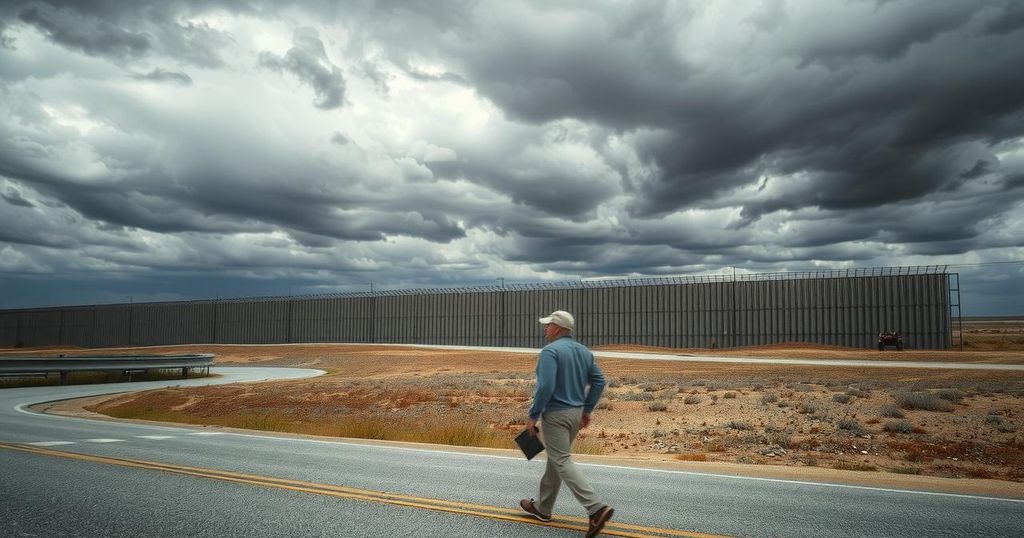Trump Administration Deports Migrants Despite Court’s Injunction

The Trump administration deported hundreds of migrants to El Salvador despite a judge’s temporary injunction. The deportations continued as two planes were already en route during the ruling. Legal challenges are underway regarding the use of the Alien Enemies Act and potential violations of constitutional rights. With the ACLU involved, the court is expected to address these legal and ethical implications soon.
The Trump administration has proceeded with the deportation of hundreds of migrants to El Salvador despite a federal judge’s temporary halt on these actions. This deportation occurred even as U.S. District Judge James E. Boasberg issued a ruling against further removals under an 18th-century wartime declaration related to Venezuelan gangs. It was reported that two planes were en route during the judge’s ruling; one to El Salvador and another to Honduras, which were apparently not redirected as ordered.
Salvadoran President Nayib Bukele, an ally of former President Trump, indicated on social media that the deportations had already occurred, commenting, “Oopsie…Too late,” while also acknowledging an agreement to accept around 300 migrants at a cost of $6 million. Additionally, Secretary of State Marco Rubio confirmed that over 250 individuals connected to the Venezuelan gang Tren de Aragua were sent to El Salvador for detention.
The basis for these deportations arises from the Alien Enemies Act of 1798, a law seldom invoked that grants the president significant power to detain or expel foreigners during wartime conditions. Historically, it has been utilized in very limited contexts, including World Wars I and II.
The American Civil Liberties Union (ACLU) has filed a lawsuit in response, seeking clarification on whether the deportations violated their court order. Lead lawyer Lee Gelernt announced the organization’s request for assurance from the government regarding compliance with the judge’s ruling.
Venezuela’s government condemned the U.S. declaration, equating it to dark historical events such as slavery and the Nazi concentration camps. The Tren de Aragua gang itself emerged from a prison notorious for lawlessness, contributing to a significant Venezuelan exodus seeking improved living conditions. The Trump administration has, however, not substantiated claims regarding the migrants’ affiliations or criminal activities.
Visual documentation from El Salvador’s government depicted deported individuals being escorted under heavy police presence, illustrating the strict measures in place upon their arrival. These deportees were taken to the controversial CECOT facility, integral to President Bukele’s security initiatives aimed at reducing violence in his nation.
Complicating matters, the proclamation invoking the Alien Enemies Act was signed on a Friday night without prior notice, raising concerns from immigration lawyers about the treatment of Venezuelan nationals. Legal actions arose to halt the deportations, emphasizing that the administration’s use of this law could unjustly target any Venezuelan citizen.
Following the filing of the initial lawsuit, Boasberg issued a temporary stay on deportations, allowing a maximum of 14 days for further legal arguments. During this period, migrants affected will remain in federal custody, with a follow-up hearing scheduled to address broader implications of the legal action in regard to constitutional rights.
Boasberg articulated the importance of ensuring that these migrants are afforded their constitutional rights and have the opportunity for judicial review, emphasizing, “Once they’re out of the country, there’s little I could do.”
In summary, the Trump administration’s deportation of migrants to El Salvador occurred despite a legal order prohibiting such actions. This situation raises significant concerns regarding the invocation of historical laws that grant the president extraordinary powers during wartime. Legal challenges continue to unfold, highlighting potential violations of constitutional rights and the risk of wrongful deportations based on unfounded accusations. The outcome of the court’s deliberations could have lasting implications for both the individuals affected and immigration policy at large.
Original Source: apnews.com







